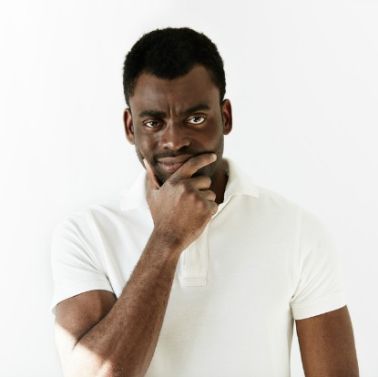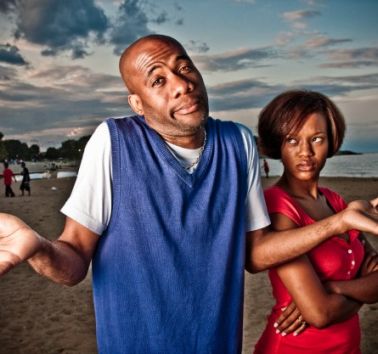how video games hurt relationships more than you may think
How Video Games Harm Relationships More Than You Think - Page 12
Share the post
Share this link via
Or copy link

Gettyimages.com/Two friends playing video game
I don’t have an issue with adults playing video games. I’m not one of those holier-than-thou, judgmental people who think video games are juvenile or immature. Honestly, I love a good Pixar movie, sometimes I eat kid’s cereal, and don’t hate if a kiddy pool is around for a barbecue. I have no issue with activities and items that are considered “for kids.” But too much of anything is never a good thing, and I have noticed that video games—in particular—are a thing to which people can become addicted. I’ve never really known a casual, adult gamer. It’s either all or nothing. It’s not something anyone dabbles in. And video games have a very peculiar nature: they can let you escape from reality far more than most other activities that are available at the touch of a button. Here is how video games hurt relationships more than you may think.

Shutterstock
Emotional cheating
A lot of video games are part of larger worlds, in which gamers join online forums and communities, having live conversations through their headsets with other gamers. Unfortunately, they can end up talking to other gamers—people they barely know—about their personal lives more than they talk to their own partner.

Image Source: Shutterstock
A false sense of stress
Video games can elevate heart rate and actually cause the gamer to feel like he is under stress. Then, when he puts down the game after a loss, he can behave irritated and short with his partner as if a real problem has occurred. But it’s all fake, cyber issues.

Shutterstock
Forcing your partner to nag
Love MadameNoire? Get more! Join the MadameNoire Newsletter
We care about your data. See our privacy policy.
The gamer usually puts his partner in a position in which she has to nag. “Come to bed,” “We’re going to be late,” “You still haven’t taken out the trash…” are all things we have to say because video gaming has taken our partner’s attention.

Image Source: Shutterstock
An exclusive club with other gamers
Really avid gamers develop their own language with other gamers. The game consumes their minds and conversations. This can leave their partners feeling a bit left out, when all the conversation is centered around something they know nothing about.

Shutterstock
Taking up the TV
It may not seem like a big deal, but when your partner is in front of the TV, playing video games, for four, five, six hours a day…you can almost never just find the TV unoccupied. You always have to ask your partner to stop what he’s doing, so you can watch something.

Image Source: Shutterstock
Choosing it over simple errands together
It’s always more fun to play a video game than accompany your partner to the grocery store, but if you always choose the game over those little errands, you miss out on some important bonding time.
Shutterstock
A feeling that real life is boring
Video games can be so exciting and create worlds that are so immeasurably more thrilling than the real one, that gamers can start to feel discontent and even depressed about their lives.

Shutterstock
A false sense of control
In the gaming world, the player has a lot of control. He might have weapons. He might have total control over what his character and other characters do—how they treat him, what they do for him. And he can start to think he has that power in his relationship…but he doesn’t.

Image Source: Shutterstock
Financial burden
Some video game addictions are so bad that they become financial burdens. Games, and their accompanying equipment, can be expensive. Not only that but your partner might choose gaming over working extra hours at a part time job to save money.

Corbis
They distract from career discontent
Often, video games are just a distraction from someone’s real life discontent. If someone doesn’t feel like he’s going where he wants to in real life—say, in his career—he might just throw himself into video games to avoid that fact.

They’re an escape from fights
Don’t want to address an issue in your relationship? Just direct that aggression into a video game. Oh, wait, the issue is still there.

Image Source: Shutterstock
You don’t go to bed together
Instead of going to bed with his partner, a gamer might just see the fact that she’s going to sleep as an excuse to stay up gaming—it’s not like they were going to hang out, anyways. But that’s a bit of a killer for their sex life.

Image Source: Shutterstock
It’s inactive
Most people already sit and look at a screen all day for work, so ideally, our hobbies don’t have us doing the same thing. Then gamers are totally void of the important endorphins that come from movement.

Shutterstock
It may be swapping one addiction for another
Video game addictions are often just a replacement for another type of addiction, like smoking, drinking, or gambling. But if the gamer needs something to be addicted to, that means he isn’t facing the emotional or mental source of his issues.

Shutterstock
It can be your relationship vs your video game
For the gamer’s partner, it can feel like she is always in competition with the video game. The activity she suggests has to be more exciting than the video game. She has to beg her partner to come to bed with her. It’s a never-ending battle.







